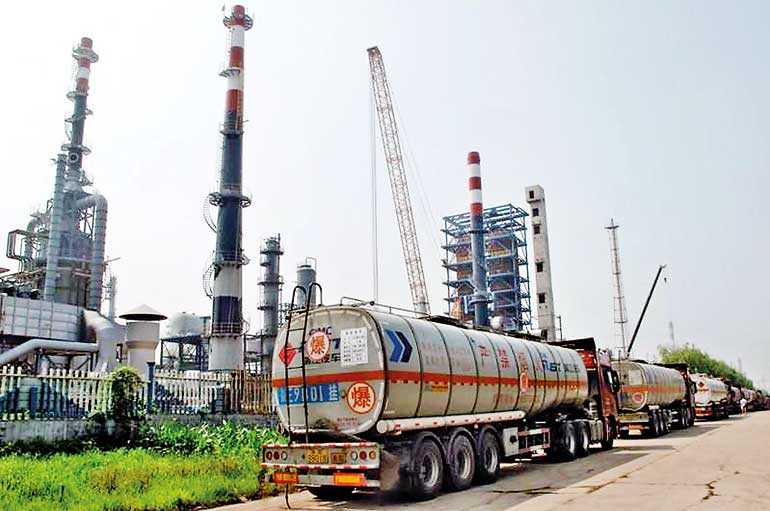Monday Feb 23, 2026
Monday Feb 23, 2026
Tuesday, 11 February 2020 00:02 - - {{hitsCtrl.values.hits}}

A Shandong Haiyou Petrochemical Group refinery is seen in Ju county, Shandong province, China 25 July 2018 – Reuters
BEIJING (Reuters): China’s factory-gate prices snapped six months of year-on-year declines in January, although prolonged business closures from the coronavirus outbreak mean positive momentum is unlikely to persist.
The virus has killed more than 900 in China and has also added to price pressures with consumer inflation hitting a more than eight-year high as government restrictions on movement drove residents to stock up on essentials.
China’s producer price index rose 0.1% from a year earlier, according to data released by the National Bureau of Statistics on Monday, in line with expectations tipped by a Reuters poll of analysts and reversing a 0.5% drop in December.
Analysts attributed the rise to improving activity in the industrial sector at the end of last year, buoyed by a trade truce with the United States and government stimulus, which finally appeared to gain traction.
However, those gains are not expected to be sustained amid growing economic headwinds from the coronavirus.
“Notwithstanding different coronavirus scenarios, we maintain our view that China’s mini-cycle recovery will be delayed, but not derailed,” said economists at Morgan Stanley in a note to clients on Monday.
Morgan Stanley estimates that the coronavirus could slash up to two percentage points off China’s first quarter growth if factory suspensions nationwide would continue beyond February.
The epidemic, which originated in the central China city of Wuhan, has infected over 40,000 people in the country, forcing Beijing to extend holidays in key manufacturing bases and impose severe controls in major cities.
Movement of goods and people has also been severely disrupted, with some firms including South Korea’s Hyundai Motor and Japan’s Nintendo expecting major disruptions in their supply chains.
This has prompted some economists to drastically lower their GDP growth estimates for the first quarter and the full year. Beijing is mulling slashing its 2020 growth target of around 6% and readying fiscal and monetary stimulus to counter the effects of the outbreak, policy sources have told Reuters.
China’s consumer price index rose 5.4% from a year earlier in January, beating the 4.9% rise tipped by a Reuters poll of analysts and a 4.5% rise in December. It was also the fastest acceleration since October 2011.
The NBS in a commentary on the data attributed the acceleration in consumer prices to the Lunar New Year holiday, the coronavirus outbreak and lower base from last year. Food prices surged 20.6% in January from a year earlier while pork prices more than doubled.
“We believe the coronavirus outbreak may keep CPI inflation above 4.0% y-o-y in H1 2020 due both to hoarding by households (e.g., food and other supplies), disruptions to transport and supply shocks as a result of those lockdowns,” said Nomura analysts after the data release on Monday.
“That said, we believe PPI inflation is poised to decline due to a big slowdown in property and infrastructure investment.”